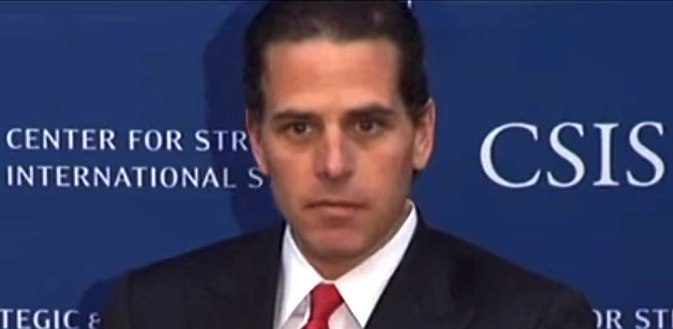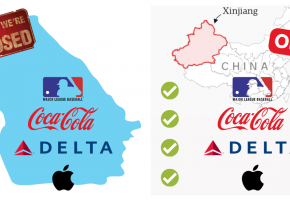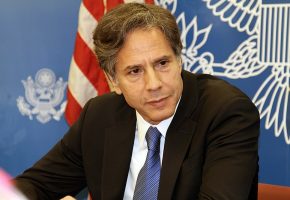
Hunter Biden Listed as Fisker Creditor, Raising Questions About Green Energy Boondoggle
In 2009, the Obama-Biden administration agreed to pump $500 million of taxpayer stimulus cash into a foreign automotive company, Fisker, to make cars in the vice president’s home state of Delaware. When their green-energy boondoggle went belly up, zero cars had been manufactured in the United States — despite the hefty cost footed by America.
The intricacies of the deal are tangled. Bankruptcy documents related to the Fisker failure curiously listed Joe Biden’s son, Hunter, as a creditor to the automaker. Fisker was later purchased at auction by Wanxiang, a Chinese conglomerate, after being “enticed” by Fisker creditors. Wanxiang also has ties to Hunter Biden: The foreign company had invested $1.25 billion into a different company that was a client of Seneca Advisors, Hunter’s consulting firm.
Fisker was awarded $528 million in federal loans to build luxurious looking, environmentally friendly automobiles in America — despite having never sold a car. The grant was given by the Department of Energy and celebrated by Secretary Steven Chu who declared that thousands of jobs would be created.
It has been written that Fisker’s overall marketing strategy “call[ed] out to an untapped market: moneyed Hollywood vegans, of which there plenty.” Fiscal watchdogs were alarmed by the Obama-Biden administration’s expenditure. One warned at the time: “This is not for average Americans. This is for people to put something in their driveway that is a conversation piece. It’s status symbol thing.”
The Fisker strategy also relied on large-scale government investment, which was made easier by having strong political connections. Fisker was backed by former Vice President Al Gore and venture capitalist John Doerr, a “big-ticket” Obama donor and now a major contributor to Joe Biden’s 2020 campaign.
In February 2009, Doerr had been appointed by the Obama-Biden administration to sit on an economic recovery board. His firm, Kleiner Perkins, managed a $100 million tech fund. CNET reported of his appointment: “Not-so-coincidentally, Doerr has lobbied for laws at the state level–and, more recently, as part of the ‘stimulus’ proposal–that would benefit his portfolio by moving toward smart grid, solar, and other technology.” Fisker had private clout, and soon would secure taxpayer cash.
A Biden staffer told the Wall Street Journal that he made “no direct appeals” to the agency prior to the loan’s approval. That claim from December 2009 seems suspect based on the paper’s chronicling of events. Delaware’s Chief of Economic Development dubbed Biden a “secret weapon” in securing federal support. Before ruling on the loan, Department of Energy leadership was “peppered” by elected officials in the state and had “repeated discussions with Vice President Biden and his staff.” When Secretary Chu ran into Biden at an event, he reportedly told him, “I know, I know – Fisker.” The loan was approved five days after that conversation.
Fisker chose a shuttered factory in Delaware located 3,000 miles away from the company’s headquarters. High Gear Media notes other disadvantages besides geography: “[It] needed expensive retooling, was far too large for the task at hand, and was ostensibly more expensive to retrofit than some other ‘old GM’ properties, such as Doraville.” However, the selected destination had some political advantages: It was just a few miles from Biden’s house and “across the tracks from Biden Park.”
The vice president was so excited that he “inadvertently divulge[d]” Fisker’s product plan during a speech to union members. A press release heralded a “new chapter” for the American auto industry which he believed would help our country “reclaim its top position in the global market.” Given that the taxpayers were funding this venture backed by his political allies, Biden sought to assure the nation that his investment was wise: “This is seed money that will return back to the American consumer in billions and billions and billions of dollars in good, new jobs.”
But not everything went according to Biden’s “roadmap.” When Biden predicted a “new chapter,” he wasn’t banking on his story taking a climactic turn at Chapter 11 — via a bankruptcy filing.
Two years after getting loan approval, Biden’s pet project was speeding towards disaster. An ABC News headline explained the problem: “Car Company Gets U.S. Loan, Builds Cars in Finland.” The namesake founder, Henrik Fisker, told the network, “there was no contract manufacturer in the U.S. that could actually produce our vehicle. They don’t exist here.” He added, “We’re not in the business of failing; we’re in the business of winning. So we make the right decision for the business. That’s why we went to Finland.”
By 2012, ABC News reported Fisker “continues to signal it could ditch plans to build its next generation hybrid electric vehicle in the United States, despite the nearly $200 million in Obama administration loan money it has already received.” Hybrid Cars wrote that the latest “bump in the road” for the troubled automaker was that it had “only received $193 million” of the stimulus cash. The remainder of the loan was frozen, and could only be received by Fisker if they produced a certain number of cars “by an agreed-upon deadline.” As “hardball negotiating tactics” ensued The Philadelphia Inquirer ran with this headline: “Biden-backed Fisker Delaware auto plant, 2500 jobs, in doubt.”
In March 2013, Fisker announced that it would lay off most of its workforce. The Los Angeles Times said that the company had been “stymied by unsuccessful efforts to craft a deal with Chinese investors” and the layoffs “likely signaled the death” of the company. During a hearing in the U.S. Capitol that spring, Congressman Mark Meadows asked a Fisker representative: “How many of these vehicles were ever produced in the United States?” As the automaker executive was speaking, Meadows interrupted him to seek clarity: “So, zero?” The Fisker agent confirmed that zero was “correct” – despite having received nearly $200 million in taxpayer funding. So much for Biden’s pledge that the taxpayer seed money would give America “billions and billions and billions of dollars in good, new jobs.”
By November 2013 Fisker had filed for Chapter 11 bankruptcy. The move was described by The Verge to be “all but inevitable since its Karma electric sports car failed both in tests and on the market.” Biden’s gambit had gone bust, with taxpayers losing $139,000,000 of the $192,000,000 granted.
Creditors owed money by Fisker quickly lined up. Documents show they include notable names such as Leonardo DiCaprio, Al Gore, BMW, Andre Agassi, and Robert “Hunter” Biden – the vice president’s son.
In 2014 Fisker was sold to a Chinese conglomerate, Wanxiang, after the automaker’s creditors “enticed” the corporation to make an offer that “spark[ed] competition.” The auction “drove up Fisker’s price by about $90 million, compared to the offers that started off the bidding.” Hunter Biden, who was listed as a Fisker creditor, has connections to Wanxiang.
After Senator Obama selected his father as a running mate Hunter set up a consulting firm called Seneca Global Advisors. One of Seneca’s clients was GreatPoint Energy. In an article focusing on Hunter’s “web of interests”, The Financial Times reported that GreatPoint Energy received a $1.25 billion investment from Wanxiang. They note, “it was the largest venture capital investment into the US that year. It is unclear if Hunter Biden was directly involved in securing this investment.”
The Nation wrote that when Biden investments have “turned sour, Chinese investors have been ready to help.” The magazine also observed that Joe’s political friends tend to do well at the “expense of the middle class.”
GigaOM assessed that Hunter’s appearance in bankruptcy documents means that he was likely an “early investor or just a potential customer that is owed deposit money.” If being owed cash for Fisker’s failure to deliver a pre-ordered car is the simple explanation, it’s curious that an “assistant at his Washington law firm said he was “declining to comment” when asked by the News Journal in 2013 about his role.
So, did the progeny of Vice President Biden have a financial interest in the acquisition of Fisker by Wanxiang? The Biden campaign refused to answer our inquiry.



